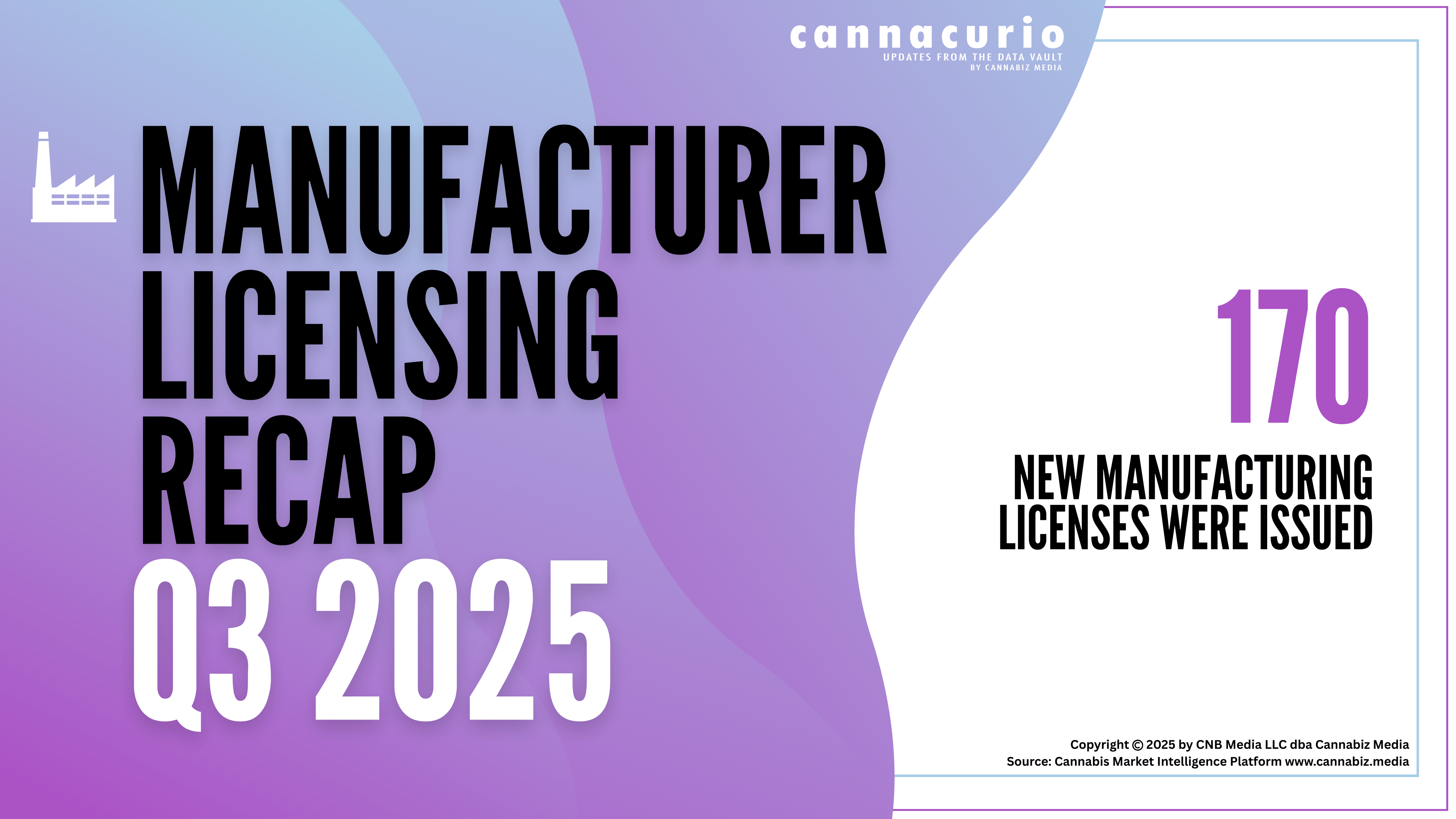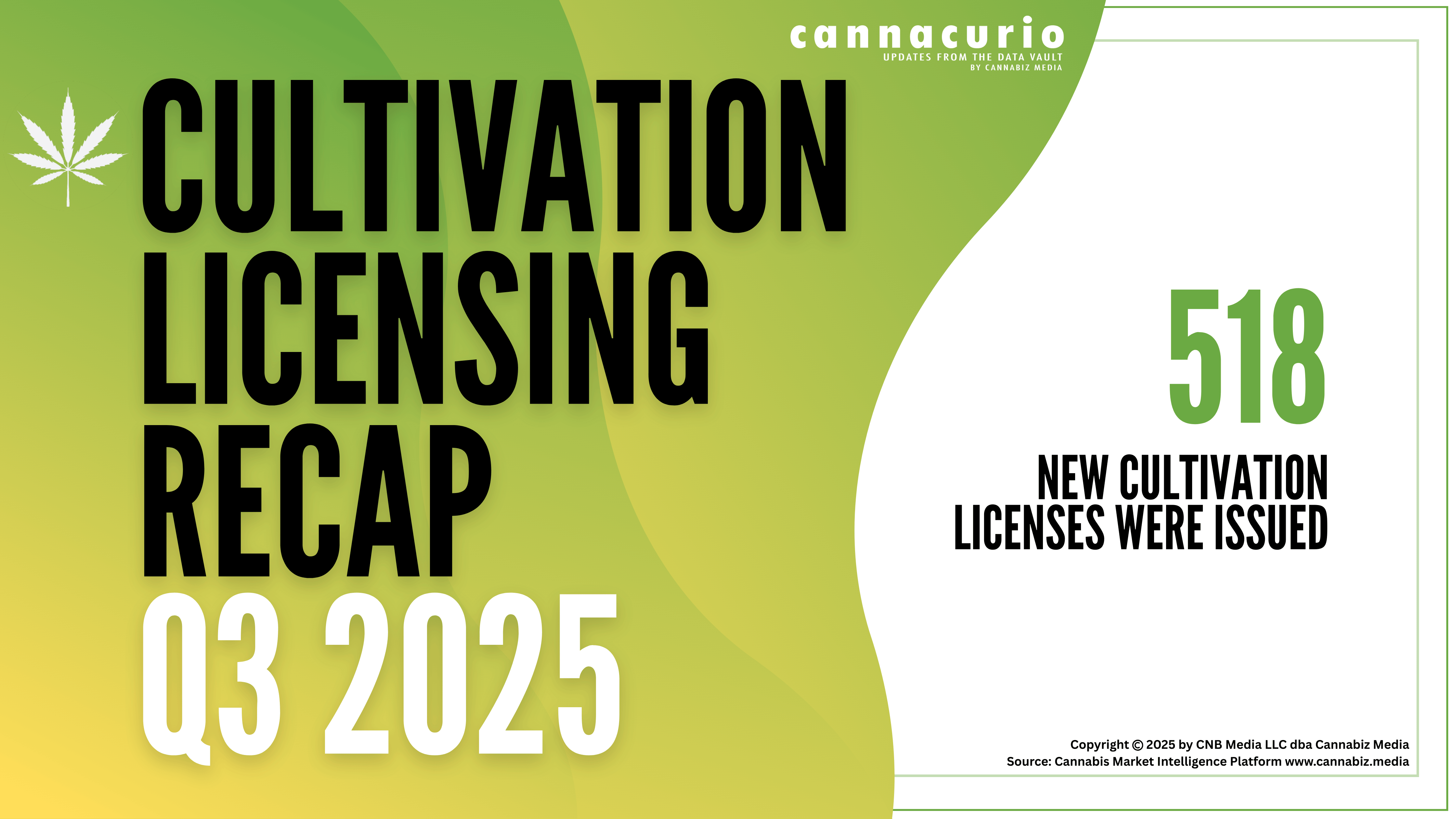
Understanding the Unique Florida Cannabis Market
Florida was one of the earlier states to legalize medical cannabis, doing so in 2016 through a constitutional amendment. The state’s cannabis market is unique in a variety of ways - being dominated by one company, including an unusual type of social equity cannabis license, and for not yet having expanded to adult-use even after seven years of medical legalization. The decision by Florida governor Ron DeSantis to run for US president has only increased national interest in understanding the state of the Florida cannabis market.
As it happens, Cannabiz Media’s database contains information on the Florida cannabis market that can help answer some of the key questions that typically arise when considering Cannabis in Florida. In this blog post we will focus on three of these questions:
- Which companies are the Florida market leaders?
- What is happening with social equity licenses in Florida?
- What is the future outlook for the Florida cannabis market?
Florida Cannabis Market Leaders
Florida has been described as the “US’s largest and most lucrative medical-only cannabis market.” Florida’s over 775,000 active medical cannabis patients (out of a total population of over 21 million) represent more than 20% of the whole country’s registered patient count.
Any discussion of Florida cannabis market leaders usually starts with one company, Trulieve. Trulieve not only sells half of the state’s legal medical cannabis, it operates a total of 163 dispensaries nationwide. In October 2022, the company purchased Arizona multistate operator Harvest, which allowed it to add another 22 Florida licenses and become the nation’s largest cannabis company. As shown in Trulieve’s Cannabiz Media profile map (Figure 1), the company has physical operations in all areas of the country.

Florida has a vertically integrated medical marijuana market, requiring companies with medical cannabis dispensaries to also cultivate, process and transport their products. To date, both legislative attempts and court challenges have failed to eliminate this vertical integration requirement. The value of these licenses is further increased because each license allows the holder to build and operate an unlimited number of production and retail facilities within the state. Going to the Cannabiz Media Companies database and filtering for Florida shows Trulieve with 126 licensed facilities in the state, followed by Verano with 71 facilities, Ayr Wellness with 63 facilities, and Curaleaf with 61 facilities (Figure 2).

In addition to the number of the stores, reviewing the number of grams of THC sold in 2023 from the Sales & Product dashboard shows how far ahead Trulieve is in Florida:

Social Equity
Florida’s approach to social equity cannabis licenses is truly unlike that of any other US state. Social equity licenses were not a component of the 2016 ballot initiative known as Amendment 2 that received 71.3% of the vote, sufficient to legalize medical cannabis use in the state. But a year later in 2017 when the Florida state legislature established medical cannabis licensing requirements, it set aside one license for a Black Florida farmer and tied eligibility for that license to “one applicant that is a recognized class member” of an earlier landmark lawsuit - Pigford v. Glickman 185 F.R.D 82 (D.D.C. 1999) . In the Pigford case, the courts had found that the USDA had discriminated against black farmers from 1983 to 1997.
As shown in the Cannabiz Media Licenses database, twelve applicants applied for the special Pigford license. Given the limited number of licenses in the state, the value of the Pigford licenses was estimated by some at $50 million. From those twelve, one applicant, Gwinn Brothers Farm license ID P004-2022, was chosen on Sept 21, 2022 (Figure 3). The Gwinn license is still pending at this time later for a variety of regulatory and legal reasons but the state legislature is also considering having the Department of Health issue additional licenses.

Gov. DeSantis & Future Market Outlook
The number of medical cannabis patients in Florida has risen steadily from its inception until today (Figure 4).

Future growth within the Florida cannabis market is likely to come from a number of different sources, including the issuance of additional medical licenses, increased per capita consumption by Florida medical patients, and adult-use legalization that would open up the market to all Florida adults as well as the state’s large influx of tourists.
Brightfield Group projected that Florida would finish 2022 with 25 percent year-over-year growth in 2022 to $1.7 billion in total medical cannabis sales. Earlier this year, Florida’s state government began an application process for a new set of medical licenses, with just the application process alone requiring a non-refundable $146,000 fee. That cost likely means that the Florida market will continue to be dominated by large multi-state operators (MSOs).
A truly epic tug of war is also taking place between proponents and opponents of adult-use legalization in Florida. In May 2023, Florida Attorney General Ashley Moody asked the state Supreme Court to reject the latest Adult Personal Use of Marijuana ballot initiative for being unconstitutional. Proponents are seeking to put the ballot initiative before voters in the 2024 General Election and have collected more than 600,000 signatures in order to do so.
A wildcard in the future outlook of the Florida market is Governor DeSantis, who seems to have tried to keep the industry at arm’s length and was recently quoted as saying that he would not legalize cannabis federally if elected president.
Conclusion
Of all the U.S. states that have yet to legalize adult-use cannabis, Florida is one of the most highly scrutinized given its large and mature medical market and its high-profile governor. With a large majority of Florida residents strongly in favor of adult-use consumption and active work in progress to get another ballot initiative in front of voters, full legalization could be only a few years away. But given political uncertainty at both the state and federal level, nothing is guaranteed. It is also possible the state will continue to be medical-only market for years to come.
About the Authors
Harry Brelsford is a principal analyst at The CannaTech Group, Dr. Paul Seaborn is an Assistant Professor in the McIntire School of Commerce at the University of Virginia.

.png)

